- Home
- Harlan Coben
Hold Tight (2008) Page 5
Hold Tight (2008) Read online
Page 5
It all seems relative and that's pretty damn horrible.
She typed in the MySpace address--www.myspace.com/Spencerhillmemorial. Spencer's classmates had created this page for him a few days after his death. There were pictures and collages and comments. In the spot where one usually placed the default picture, there was a graphic of a flickering candle.
The song "Broken Radio" by Jesse Malin with some help from Bruce Springsteen, one of Spencer's favorites, played. The quote next to the candle was from that song: "The angels love you more than you know."
Betsy listened to it for a while.
In the days after Spencer's death, this was where Betsy spent most nights--going through this Internet site. She read the comments from kids she never knew. She looked at the many pictures of her son throughout the years. But after a while, it turned sour. The pretty high school girls who'd set it up, who also bathed in the now-deceased Spencer, had barely given him the time of day in life. Too little too late. All claimed to miss him, but so few seemed to have known him.
The comments read less like epitaphs than some arbitrary scribbling in a dead boy's yearbook:
"I'll always remember gym class with Mr. Myers..."
That had been seventh grade. Three years ago.
"Those touch football games, when Mr. V would want to quarterback..."
Fifth grade.
"We all chilled at that Green Day concert..."
Eighth grade.
So little recent. So little truly heartfelt. The mourning seemed more for show than anything else--public displays of grief for those who really didn't mourn all that much, her son's death a speed bump on the way to college and a good job, a tragedy, sure, but closer to a resume-enhancing life requisite like joining Key Club or running for student council treasurer.
There was so little from his real friends--Clark and Adam and Olivia. But maybe that was how it was. Those who really grieve don't do it in public--it truly hurts, so you keep it to yourself.
She hadn't checked the site in three weeks. There had been little activity. That was how it was, of course, especially with the young. They were on to other things. She watched the slide show. It took all of the photographs and kind of made them look like they were being tossed on a big pile. The images would rotate into view, stop, and then the next one would come circling down on top of it.
Betsy watched and felt the tears come.
There were many old photographs from Hillside Elementary School. There was Mrs. Roberts's first-grade class. And Mrs. Rohr- back's third grade. Mr. Hunt for fourth grade. There was a picture of his intramural homeroom basketball team--Spencer had been so excited by that victory. He'd hurt his wrist the game before--nothing serious, just a little sprain--and Betsy had wrapped it for him. She remembered buying the ACE bandage. In the photograph, Spencer was holding up that hand in victory.
Spencer hadn't been much of an athlete but in that game, he had hit the winning basket with six seconds left. Seventh grade. She wondered if she'd ever seen him happier.
A local policeman had found Spencer's body on the roof of the high school.
On the computer monitor the pictures continued to swirl by. Betsy's eyes grew wet. Her vision blurred.
The school roof. Her beautiful son. Scattered amongst the debris and broken bottles.
By then everyone had gotten Spencer's good-bye text. Text. That was how their son told them what he was about to do. The first text had gone to Ron, who'd been in Philadelphia on a sales call. Betsy's cell phone had received the second, but she was at Chuck E. Cheese's, the arcade-pizzeria where parental migraines are born, and didn't hear the text come in. It wasn't until an hour later, after Ron left six messages on her phone, each more frantic than the last, that she found the text sitting on her phone, the final message from her boy: I'm sorry, I love you all, but this is too hard. Good-bye.
It took the police two days to find him on the roof of the high school.
What was too hard, Spencer?
She would never know.
He had sent that text to a few other people too. Close friends. That was where Spencer had told her he was going. To hang out with Clark and Adam and Olivia. But none of them had seen him. Spencer had not shown up. He had gone out on his own. He had pills with him-- stolen from home--and swallowed too many of them because something was too hard and he wanted to end his life.
He had died alone on that roof.
Daniel Huff, the town cop who had a son Spencer's age, a kid named DJ who Spencer hung out with a little, had come to the door. She remembered opening it, seeing his face and simply collapsing.
Betsy blinked away the tears. She tried to focus again on the slide show, on the images of her son alive.
And then, just like that, a picture rotated into view that changed everything.
Betsy's heart stopped.
The picture was gone as fast as it had come. More pictures piled over it. She put her hand to her chest, tried to clear her mind. The picture. How could she get to that picture again?
She blinked again. Tried to think.
Okay, first off. It was part of an online slide show. The show would repeat. She could simply wait. But how long until it would start up again? And then what? It would fly by again, staying in view only a few seconds. She needed a closer look.
Could she freeze the screen when it came back on?
There had to be a way.
She watched the other photographs swirl by, but they weren't what she wanted. She wanted that other picture back.
The one with the sprained wrist.
She thought again back to that intramural game from seventh grade because she remembered something a little odd. Hadn't she just been thinking about that moment? When Spencer wore the ACE bandage? Yes, of course. That had been the catalyst, really.
Because the day before Spencer's suicide, something similar had happened.
He had fallen and hurt his wrist. She had offered to wrap it again, as she had back when he was in seventh grade. But instead, Spencer had wanted her to buy a wrist sleeve. She had. He had worn it the day he died.
For the first and--obviously--last time.
She clicked on the slide show. It brought her to a site,slide.com , and asked her for her password. Damn. It had probably been created by one of the kids. She thought about that. Security wouldn't be great on something like this, would it? You were just setting it up and letting your fellow students use it to put whatever photographs they wanted into the rotation.
So the password had to be something simple.
She typed in: SPENCER.
Then she hit OK.
It worked.
The pictures were laid out. According to the heading, there were 127 photographs in here. She quickly scanned through the thumb-nails until she found the one she wanted. Her hand was shaking so badly she could barely get the mouse on the image. She did and then she clicked the left button.
The photograph came up full size.
She just stopped and stared.
Spencer was smiling in the picture, but it was the saddest smile she had ever seen. He was sweating; his face had the sheen of someone high. He looked drunk and defeated. He wore the black T-shirt, the same one he wore on that last night. His eyes were red--maybe from drink or drugs but certainly from the flash. Spencer had beautiful light blue eyes. The flash always made him look like the devil. He was standing outdoors, so it had to have been taken at night.
That night.
Spencer had a drink in his hand, and there, on that same hand, was the wrist sleeve.
She froze. There was only one explanation.
This picture had been taken the night Spencer died.
And as she looked around, into the background of the photograph, and saw people milling about, she realized something else.
Spencer hadn't been alone, after all.
Chapter 7.
AS he had nearly every weekday for the past decade, Mike woke up at five in the morning. He worked out for e
xactly one hour. He drove into New York City over the George Washington Bridge and arrived at NewYork-Presbyterian's transplant center by seven A.M.
He threw on the white coat and rounded on patients. There were times when this threatened to become routine. It didn't vary much, but Mike liked to remind himself of how important this was to that person lying in the bed. You are in a hospital. That alone made you feel vulnerable and scared. You are ill. You may very well be dying and it seems to you that the person who stands in the way between you and greater suffering, between you and death, is your doctor.
How does your doctor not develop a bit of a God complex?
More than that, sometimes Mike thought it was healthy to have that complex, albeit benevolently. You mean a lot to your patient. You should act like it.
There were doctors who rushed through it. There were times Mike wanted to do that too. But the truth is, if you give your all, it only takes an extra minute or two per patient. So he listened and held a hand if that was required or stayed a little aloof--depending on the patient and how he read them.
He was at his desk by nine A.M. The first patient had already arrived. Lucille, his RN, would be working them up. That gave him maybe ten minutes to review the charts and overnight test results. He remembered his neighbor and quickly searched for the Loriman results in the computer.
Nothing posted yet.
That was odd.
A strip of pink drew Mike's eye. Someone had stuck a Post-it note onto his phone.
See me
--Ilene
Ilene Goldfarb was his practice partner and head of transplant surgery at NewYork-Presbyterian. They had met during their residency in transplant surgery and now lived in the same town. He and Ilene were friends, Mike guessed, but not close ones, which made the partnership work well. They lived maybe two miles apart, had kids who attended the same schools, but other than that, they had few mutual interests, didn't need to socialize, and totally trusted and respected the other's work.
Do you want to test your doctor friend on his medical recommendation? Ask him this: If your kid was sick, what doctor would you send him to?
Mike's answer was Ilene Goldfarb. And that told you everything you needed to know about her competence as a physician.
He headed down the corridor. His feet padded silently on the industrial-gray wall-to-wall. The prints lining the off-white hallway were gentle on the eyes, simple and with about as much personality as the artwork you'd find in a mid-scale motel chain. He and Ilene had wanted the entire office to whisper, "This is about the patient and the patient only." In the offices, they displayed only professional diplomas and citations because that seemed to comfort. They did not keep anything personal--no pencil holder made by a child, no family photographs, nothing like that.
Your child often came here to die. You don't want to see the image of someone else's smiling, healthy children. You just don't.
"Hey, Doc Mike."
He turned. It was Hal Goldfarb, Ilene's son. He was a high school senior, two years older than Adam. He'd made Princeton early decision and planned to go in premed. He'd managed to get school credit to spend three mornings a week interning for them.
"Hey, Hal. How's school?"
He gave Mike a big smile. "Coasting."
"Senior year after you've already been admitted to college--the dictionary definition of coasting."
"You got it."
Hal was dressed in khakis and a blue dress shirt and Mike couldn't help but notice the contrast with Adam's goth black and feel a pang of envy. As if reading his mind, Hal said, "How's Adam?"
"Okay."
"I haven't seen him in a while."
"Maybe you should give him a call," Mike said.
"Yeah, I should. It'd be great to hang out."
Silence.
"Mom in her office?" Mike asked.
"Yes. Go right in."
Ilene sat behind her desk. She was a slight woman, small-boned except for her talonlike fingers. She wore her brown hair pulled back in a severe ponytail and had horn-rimmed glasses that nicely straddled the border between looking bookish and in vogue.
"Hey," Mike said.
"Hey."
Mike held up the pink Post-it note. "What's up?"
Ilene let loose a long breath. "We got a big problem."
Mike sat. "With?"
"Your neighbor."
"Loriman?"
Ilene nodded.
"Bad tissue test result?"
"Weird test result," she said. "But it had to happen sooner or later. I'm surprised this is our first."
"Do you want to clue me in?"
Ilene Goldfarb took off the glasses. She put one of the earpieces in her mouth and chewed on it. "How well do you know the family?"
"They live next door."
"You close?"
"No. Why, what's that got to do with anything?"
"We may have," Ilene said, "something of an ethical dilemma."
"How so?"
"Dilemma might be the wrong word." Ilene looked off, talking more to herself than Mike right now. "More like a blurry ethical line."
"Ilene?"
"Hmm."
"What are you talking about?"
"Lucas Loriman's mother will be here in half an hour," she said.
"I saw her yesterday."
"Where?"
"In her yard. She's doing a lot of pretend gardening."
"I bet."
"Why do you say that?"
"Do you know her husband?"
"Dante? Yes."
"And?"
Mike shrugged. "What's going on, Ilene?"
"It's about Dante," she said.
"What about him?"
"He's not the boy's biological father."
Just like that. Mike sat there for a moment.
"You're kidding me."
"Yeah, that's what I'm doing. You know me--Dr. Kidder. Good one, right?"
Mike let it sink in. He didn't ask if she was sure or wanted to take more tests. She would have thought of all those angles. Ilene was right too--the bigger surprise was that they hadn't run into this before. Two floors below them were the geneticists. One of them told Mike that in random population tests, more than ten percent of men were raising children that, unbeknownst to them, weren't biologically theirs.
"Any reaction to this news?" Ilene said.
"Wow?"
Ilene nodded. "I wanted you to be my medical partner," she said, "because I love your way with words."
"Dante Loriman is not a nice man, Ilene."
"That was my vibe."
"This is bad," Mike said.
"So is his son's condition."
They sat there and let that sit in the room, heavy.
The intercom buzzed. "Dr. Goldfarb?"
"Yes."
"Susan Loriman is here. She's early."
"Is she here with her son?"
"No," the nurse said. "Oh, but her husband is with her."
" WHAT the hell are you doing here?"
County Chief Investigator Loren Muse ignored him and headed over to the corpse.
"Sweet Lord," one of the uniforms said in a hushed voice, "look what he did to her face."
The four of them stood now in silence. Two were first-on-the-scene uniforms. The third was the homicide detective who'd technically be in charge of the case, a lazy lifer with a potbelly and world-weary manner named Frank Tremont. Loren Muse, the lead investigator for Essex County and the lone woman, was the shortest of the group by nearly a foot.
"DH," Tremont pronounced. "And I'm not talking baseball terminology."
Muse looked a question at him.
"DH, as in Dead Hooker."
She frowned at his chuckle. Flies buzzed about the pulpy mess that at one time had been a human face. There was no nose or eye sockets or even much of a mouth anymore.
One of the uniforms said, "It's like someone shoved her face into a meat grinder."
Loren Muse looked down at the body. She let
the two uniforms jabber. Some people jabber to ward off the nerves. Muse wasn't one of them. They ignored her. So did Tremont. She was his immediate superior, all their superiors really, and she could feel the resentment coming off them like humidity from the sidewalk.
"Yo, Muse."
It was Tremont. She looked at him in that brown suit with the belly from too many nights of beer and too many days of doughnuts. He was trouble. There had been complaints leaked to the media since she'd been promoted to chief investigator of Essex County. Most came from a reporter named Tom Gaughan, who just so happened to be married to Tremont's sister.
"What is it, Frank?"
"Like I asked you before--what the hell are you doing here?"
"I need to explain myself to you?"
"I caught this one."
"So you did."
"And I don't need you looking over my shoulder."
Frank Tremont was an incompetent ass but because of his personal connections and years of "service," fairly untouchable. Muse ignored him. She bent down, still staring at the raw meat that had once been a face.
"You get an ID yet?" she asked.
"No. No wallet, no purse."
"Probably stolen," one of the uniforms volunteered.
Lots of male head-nodding.
"Gang got her," Tremont said. "Look at that."
He pointed to a green bandana still clutched in her hand. "Could be that new gang, bunch of black guys who call themselves Al Qaeda," one of the uniforms said. "They wear green."
Muse stood and started circling the corpse. The ME van arrived. Someone had police-taped the scene. A dozen hookers, maybe more, stood behind the line, each stretching her neck for a better view.
"Have the uniforms start talking to the working girls," Muse said. "Get a street name at least."
"Gee, really?" Frank Tremont sighed dramatically. "You don't think I already thought of that?"
Loren Muse said nothing.
"Hey, Muse."
"What, Frank?"
"I don't like you being here."
"And I don't like that brown belt with black shoes. But we both have to live with it."
"This isn't right."
Muse knew that he had a point. The truth is, she loved her prestigious new position as chief investigator. Muse, still in her thirties, was the first female to hold that title. She was proud. But she missed the actual work. She missed homicide. So she got involved when she could, especially when a seasoned jackass like Frank Tremont was on the job.

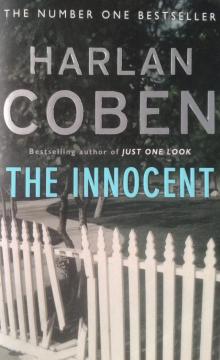 The Innocent
The Innocent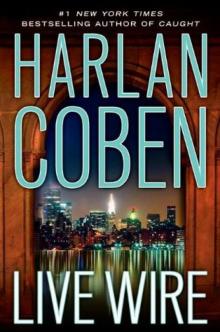 Live Wire
Live Wire Play Dead
Play Dead Drop Shot
Drop Shot Seconds Away
Seconds Away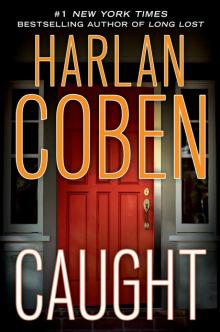 Caught
Caught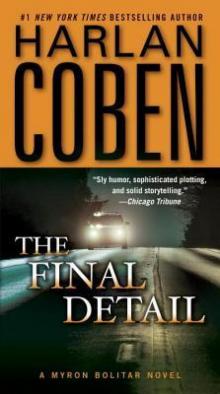 The Final Detail
The Final Detail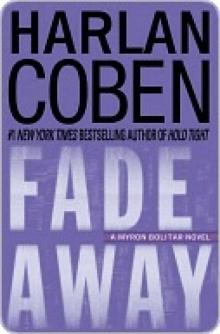 Fade Away
Fade Away Home
Home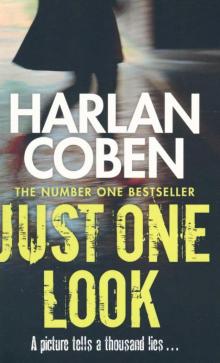 Just One Look
Just One Look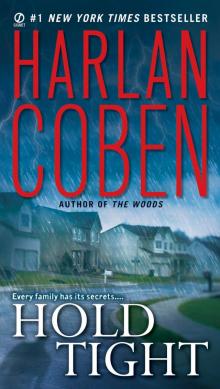 Hold Tight
Hold Tight Fool Me Once
Fool Me Once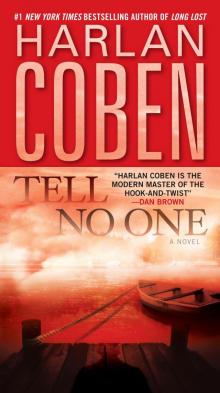 Tell No One
Tell No One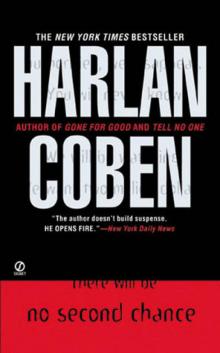 No Second Chance
No Second Chance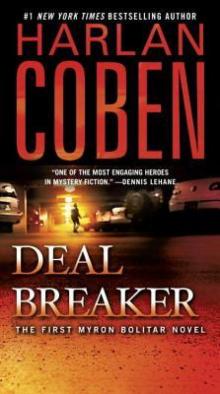 Deal Breaker
Deal Breaker Long Lost
Long Lost One False Move
One False Move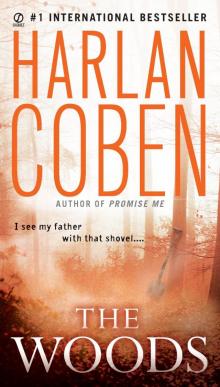 The Woods
The Woods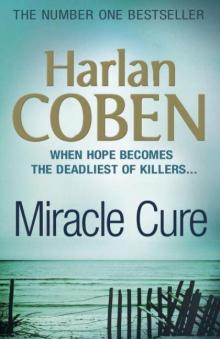 Miracle Cure
Miracle Cure Found
Found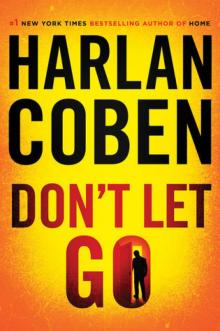 Don't Let Go
Don't Let Go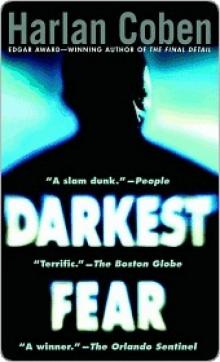 Darkest Fear
Darkest Fear The Stranger
The Stranger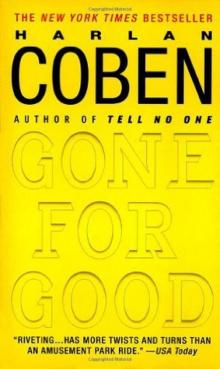 Gone for Good
Gone for Good Back Spin
Back Spin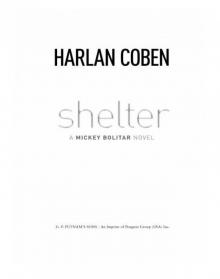 Shelter
Shelter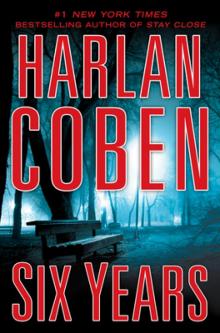 Six Years
Six Years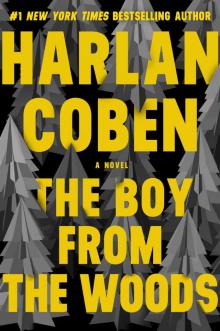 The Boy from the Woods
The Boy from the Woods Missing You
Missing You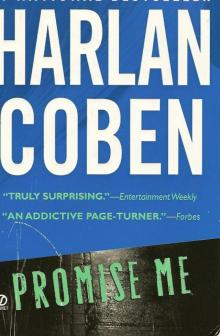 Promise Me mb-8
Promise Me mb-8 The Final Detail: A Myron Bolitar Novel
The Final Detail: A Myron Bolitar Novel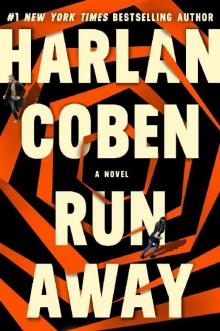 Run Away
Run Away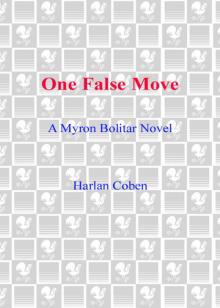 One False Move: A Myron Bolitar Novel
One False Move: A Myron Bolitar Novel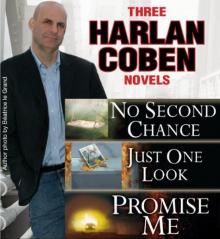 Three Harlan Coben Novels
Three Harlan Coben Novels the Woods (2007)
the Woods (2007) Tell No One (2001)
Tell No One (2001) the Innocent (2005)
the Innocent (2005)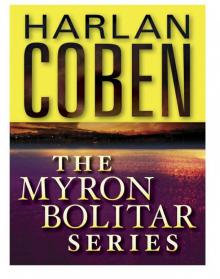 The Myron Bolitar Series 7-Book Bundle
The Myron Bolitar Series 7-Book Bundle Gone for Good (2002)
Gone for Good (2002) Caught (2010)
Caught (2010) Hold Tight (2008)
Hold Tight (2008)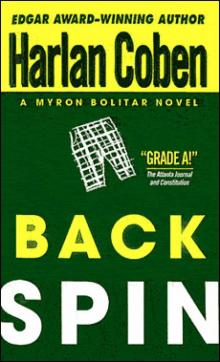 04 - Back Spin
04 - Back Spin Miracle Cure (1991)
Miracle Cure (1991) Harlan Coben 3 Novel Collection
Harlan Coben 3 Novel Collection Just One Look (2004)
Just One Look (2004)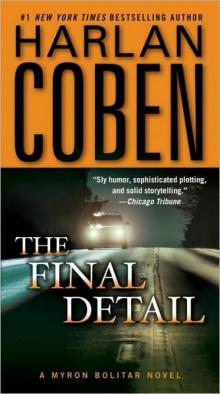 The Final Detail mb-6
The Final Detail mb-6 Play Dead (2010)
Play Dead (2010)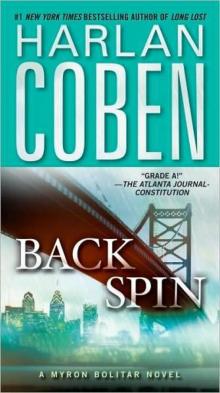 Back Spin mb-4
Back Spin mb-4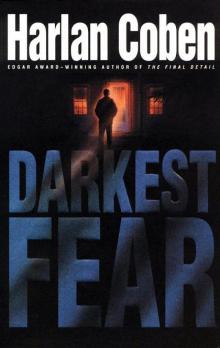 Darkest Fear mb-7
Darkest Fear mb-7